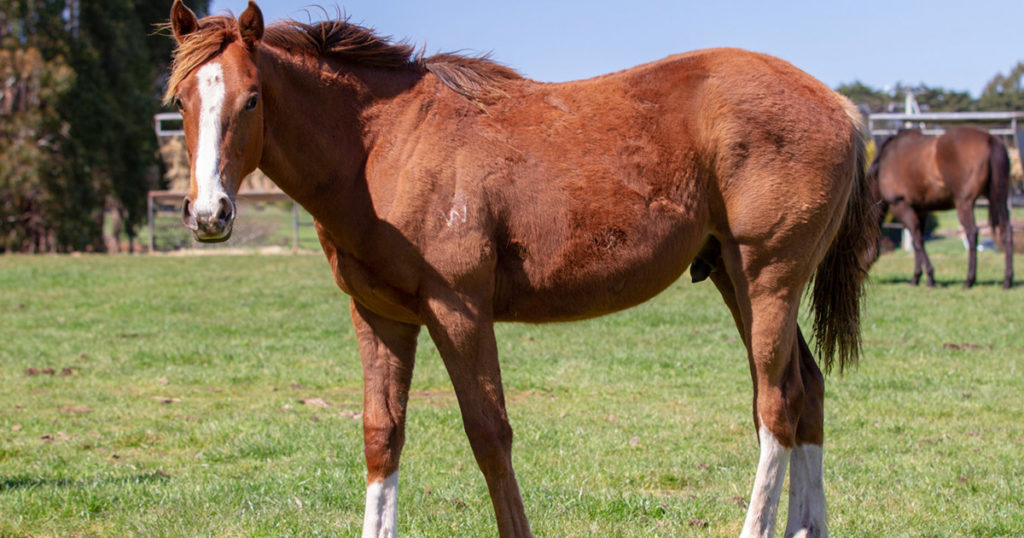What we feed our horses and how we feed them are crucial to their health. Diet and nutrition are known to play an important role in our horse’s gastrointestinal (GI), immune and metabolic health, in addition to their behaviour. Feed can influence the development and severity of gastric and colonic ulcers, laminitis, developmental orthopaedic disease (DOD), fertility challenges, behavioural issues and equine metabolic syndrome (EMS), as well as many other conditions.
In recent years, much attention has been given to grain-free feeds. Low-GI, low starch, ‘calming’ and low sugar feeds also get plenty of airtime. All the terms can relate to different aspects of the feed, but in the majority of cases, it is clever marketing and doesn’t ensure that the feed we are purchasing is necessarily suitable or safe for our horses and ponies.
Clever marketing and loopholes in claims that can be made on feed packages can become very confusing. Feeds can claim to be ‘grain free’, a ‘calm performing feed’ or low GI, yet in some cases the predominant ingredients in the feed may be made from grain! If we take a look at an ingredients list (remembering that ingredients are ordered in descending order of the percentage they make up of the feed) grain may be present in the form of millmix, millrun, pollard, cereal by-products, wheat middlings to name a few! Other products may be truly grain-free but contain large amounts of molasses and other high-calorie oils and ingredients to bind the feed together and/or make it more palatable. In either case, for many horses with metabolic issues, these feeds are likely to not be suitable. Generally ‘grain-free’ refers to the fact that no whole grains are present, yet many of these feeds contain processed grain ingredients- which certainly doesn’t make them grain-free! Along the same lines, there are feeds widely available in Australia that are advertised as suitable for horses with ‘grain intolerance’ which have barley or millrun as the predominant ingredient in the feed!
There are many reasons why it may be preferable to feed a horse or pony a truly grain-free diet, particularly a diet low in starch and sugars. For many equines, they don’t need the calories/energy provided by such grains and concentrated feeds, and in the case of horses with equine metabolic syndrome, insulin resistance and many cases of laminitis and Pituitary Pars Intermedia Dysfunction (PPID) (formerly known as ‘Cushings’), steering clear of grain is generally a good idea. For other horses with higher calorie needs, the incomplete digestion of grain products and the resulting fermentation of starch and sugars in the hindgut can increase the risk and/or severity of gastric and colonic ulcers, inflammatory bowel disease, ’tying up’, developmental orthopaedic diseases (such as OCDs and bone cysts), immune dysfunction, inflammatory conditions and behavioural issues.
If a horse needs to be on a grain-free diet, and more specifically a low starch and sugar diet, we need to pay particular attention to all the ingredients contained in a feed, as well as the feed’s nutritional analysis- not just the marketing claims! We also need to remember that a horse’s or pony’s ‘hard feed’ should only make up a small percentage of its diet. We need to consider the role which pasture and hay play in each equine’s intake: from the perspective of calories, starch and sugar. Additionally remember that for multiple health reasons, long-stem fibre (such as that found in hay) should form the basis of their diets. To read more on the importance of fibre and hay, see the articles Fibre, Chewing and Gastrointestinal Health; Why Basics Matter: The Importance of Chewing; Hay, Stomach (Gastric) & Hindgut (Colonic) Ulcers; and Grass, Hay, Fibre and Short Chain Fatty Acids.
What and how we feed our horses and ponies plays a crucial role in their overall health. In many cases, we can mitigate the risk of severe health conditions, whilst also ensuring that we are giving our equines everything they need to perform at their best and be in the best of health. Clever marketing and loopholes in regulations governing feed claims can make it both challenging and confusing to feed your horse or pony in a way that is best for each individual equine. Seeking independent advice from suitably qualified and experienced nutritionists and equine health practitioners is one of the best investments you can make in your horses’ health and performance. Prefer listening to podcasts or watching webinars to learn more about equine nutrition, gut health, ulcers, immune health and other horse health conditions? Be sure to visit our Media page for plenty of informative recordings.

Camilla Whishaw is a highly regarded, experienced horsewoman and naturopath, helping to holistically treat and manage a broad range of equine health conditions and injuries, with a passion for mare and stallion fertility.
As a world-renowned practitioner, presenter, author, and consultant in the field of Equine Naturopathy, Camilla shares her knowledge through keynote presentations, interviews, lectures, panel sessions, and workshop training.





